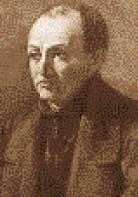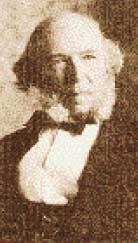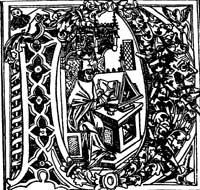Structure of sociological knowledge (I)
1996/01/01 Bandres Unanue, Luis Iturria: Elhuyar aldizkaria
XVIII. The 20th century Enlightenment taught criticism of the social structure in force through the environment and the scientific model derived from the natural sciences. Therefore, this mentality had a revolutionary and scientific objective. XVIII. The thinkers of the twentieth century believed that man was perfect and opposed all the absurd obstacles imposed by the society of his time, and among them, of course, there was a philosophy and a scholastic mentality defended by the Catholic Church.
Thus, the Enlightenment was considered the enemy of traditional philosophy and, with it, tried to overcome a closed and dogmatic criterion about the world that prevailed in the Middle Ages. Therefore, this type of thought generated is something that must be renewed and debated day by day and that new discoveries would confirm or deny accepted attitudes or consequences.

Therefore, from the beginning of sociology appear two great branches. On the one hand, Newton and other scientists try to use the methodology used in the natural sciences in social research and, on the other, to be something revolutionary and innovative with respect to the current social model. From these two branches will appear two types of sociology from the beginning and the XIX. Those created in the twentieth century will remain until today: the first, based on what is known as a sociological order, in which the scientific model of natural sciences has priority and the second, called a sociological revolution, using scientific study, being the main social change.
In this beginning of sociology we must quote as a pioneer the Count of Saint-Simon. All thinkers, however, are not of the same opinion and consider Auguste Comte as a pioneer, in the conviction that he developed the systemic capacity that corresponds to him. According to them, Saint-Simon is a man of great genius and is only the promoter of Comte. Among those who say otherwise is Proudhon, who believes that the true precursor of sociology is Saint-Simon, and argues that some principles about social classes are due to Saint-Simon.
The real name of the Count of Saint-Simon is Claude Henri de Rouvroy. He was born in Paris in 1760. Since 1803 he began to highlight his intellectual presence and that same year published the work entitled Ginebrako le carta. After the dismissal of the work, he sheared all his money and attempted suicide in 1823 by means of a shot; fortunately he got it and until his death in 1825 he continued to work with many basic contributions.
In Saint-Simon, the contradictions of initiation into sociology, between the revolutionary and the conservative tendency, are more notable. Therefore, in his research you can find all kinds of concepts, such as class struggle, pantheism, the exaltation of labor and intellectual work, the democratization of workers, pacifism, science, etc. Therefore, drinking in this rich source thinkers of all kinds is completely normal. The contribution of Saint-Simon, therefore, must be considered a normal gift.
Among these basic contributions is an approach that would have its own weight in the future: to postulate questions for the debate of its later Western sociology and to put on the table the problems of industrialized society. In addition, it is due to him to accept the possibility of a scientific method of social research and establish the basis of the positivist method in this field.
Sociological order
After the Napoleonic era, throughout Europe there arose a reaction against the ideas spread by the French Revolution, that is, the desire to return to the previous situation to recover the old regime. The reflection of this political return also reached the ideological ground and a strong current was launched against the revolution. Analysis of counter-revolutionary thought: order, stability, authority, custom, law, symbol, etc. were.
After this reaction we find, among other things, the loss of political stability of the old regime and the rupture of the relationship between the Church and the monarchy that provoked it. Counter-revolutionary thought established principles and opinions contrary to the philosophy of the Enlightenment and revolutionary rupture. These principles and considerations were subsequently assumed by sociology or, more specifically, by its branch called sociology of order.
Counterrevolutionary thinkers tried to find an organic unity in society and not a set of individuals. According to this, they considered that society was living in its entirety and that its life was independent of its components, that is, of individuals. On the contrary, it was a nominalist mentality of the Enlightenment, which merely considered individuals in their rights and interactions. However, counter-revolutionary thinkers consider that society is ahead and above individuals. Man is nothing outside the group or society and the individual would be something invented by the Enlightenment philosophers. According to this, Robinson Crusoe did not exist.

For counter-revolutionists, the relations between internal elements in organizations are the most important. Through the idea of organic unity of society, they underlined the role of interdependence between institutions and them. As a result, one cannot attack a part of society without attacking the whole of society, for example beliefs or customs.
However, the principles of counter-revolutionary thought XIX. It is believed that they were rooted in 20th century sociology or order sociology. Despite these principles, presociologists, like Auguste Comt, derived them from their reactionary theological context to integrate into scientific sociology.
In sociology of order there is a conservative mentality rather than a counterrevolutionary ideology. The sociology of order is therefore conservative but not reactionary.
In counter-revolutionary or reactionary theory we also find spiritualism, that is, the acceptance of ideas or spirit as the first agent of society. On the other hand, elitism can be found: to claim that selected people/mass, authorities/subordinates or similar couples conform to the dynamics of society and are necessary. Finally, it can be said that retrograde utopism is also one of the pillars of this mentality, suggesting that democratic progress should be replaced by an old class social structure.
In conservative theory spiritualism becomes traditionalism. Accordingly, changes in a certain area are accepted (especially in the technical-economic field), but it maintains the basic values of the structure. Elitism can also be found in this mentality, but the meaning of this concept changes: the elite based on blood or the will of kings will no longer prevail, but will be replaced by a technological elite with a specific role in society.
What can be considered elitism of scholars has come to this day and can be found in the “final theory of ideologies”. Accordingly, the growth of development has brought about the renewal of the usual ideologues groups, and the group of priests, philosophers or legislators is now replaced by that of technocrats. Finally, the conservative mentality, aside from reactionary utopism, defends the cession of the past and the acceptance of changes and advances.
Auguste Comte, Herber Spencer and sociology of order
Being intimately related to the sociology of order, it is worth mentioning two names: Auguste Comte and Herber Spencer.

The Frenchman Auguste Comte (1798-1857) left the oppressive atmosphere of his province and moved to Paris. There he trained at the scientific school and had the opportunity to know all the currents of knowledge of his time. In this age of criticism and uncertainty, the Society began to build an organic general system that it supposedly wanted and needed. That desire and passion for order can be seen in all his works. However, it cannot be said that it would be right to combine these intentions well with science, and it often seems that it covered their prejudices in some way with a scientific explanation. However, his contribution is undeniable, although the sociological judgment of Comte and the models of society are not unique, as he and others have wanted, today is considered one of the most important theoretical options of sociology. On the other hand, Comt systematized for the first time the way of doing sociology.
The English Herbert Spencer (1820-1903) represents the local bourgeoisie and its epoch. Spencer's sociology is based on social dynamics. The essence of this dynamic, applied to the individual, to the whole of society or to biology, is structured around two axes: the levels of complexity, one homogeneous to heterogeneous and the degree of integration. Based on these principles, Spencer classified all social models, from ancient tribes to European social models. This type of classification based on complexity will later be extended by all social groups by all functionalist sociologists.

Since Spencer endorsed the laws of natural order and election, anti-democratism and the need to limit the majority must be considered fully normal: “The right of the majority is a fully conditioned right, which only serves within a few limits”; “if there is no agreement, the majority does not exist with respect to the minority”. His most brilliant work is that of Man against the State, where he tells us that “theoretically the increase in freedom would in practice reduce freedoms”. He said that in colonialist England, defeated in the same text, there was also a sociological retreat and that the most appropriate solution would be to go to the military state. He could not express that paradox.
Finally, it can be said that this book is an essay on “dominant political superstition,” and that is a note to take into account for conservative generations: “the divine rights of kings have been replaced by the divine rights of parliaments.”

Gai honi buruzko eduki gehiago
Elhuyarrek garatutako teknologia





